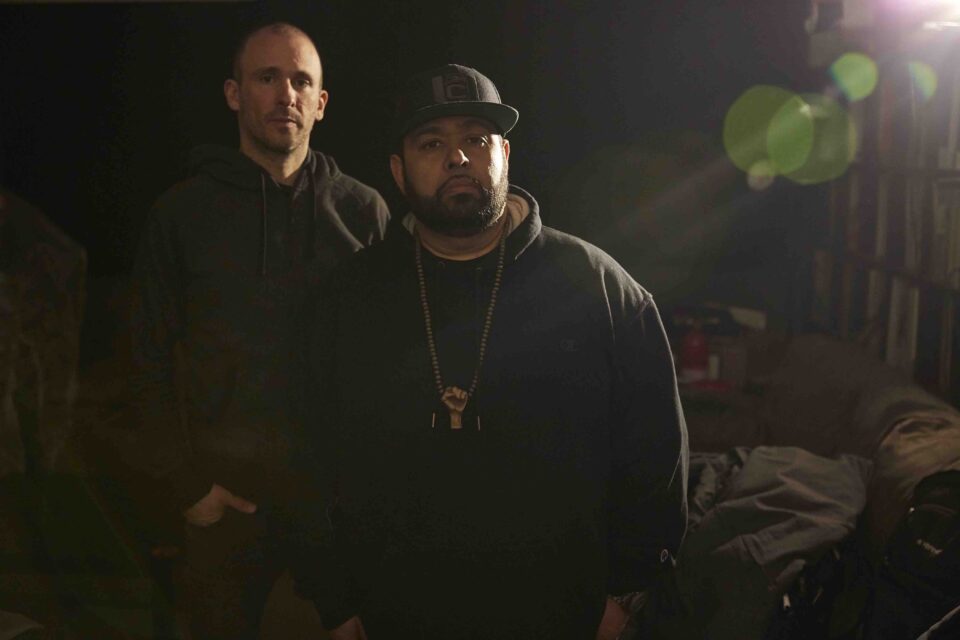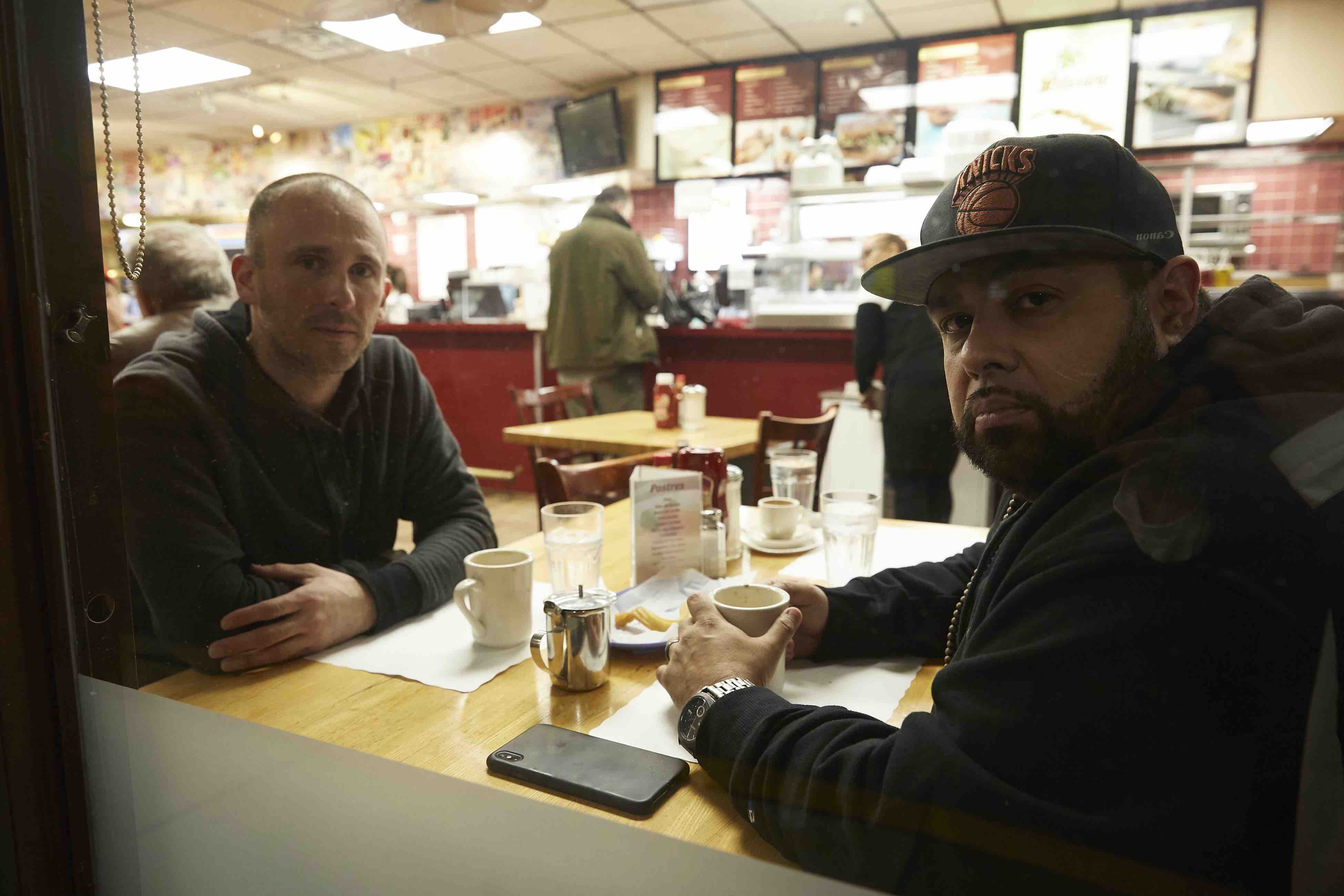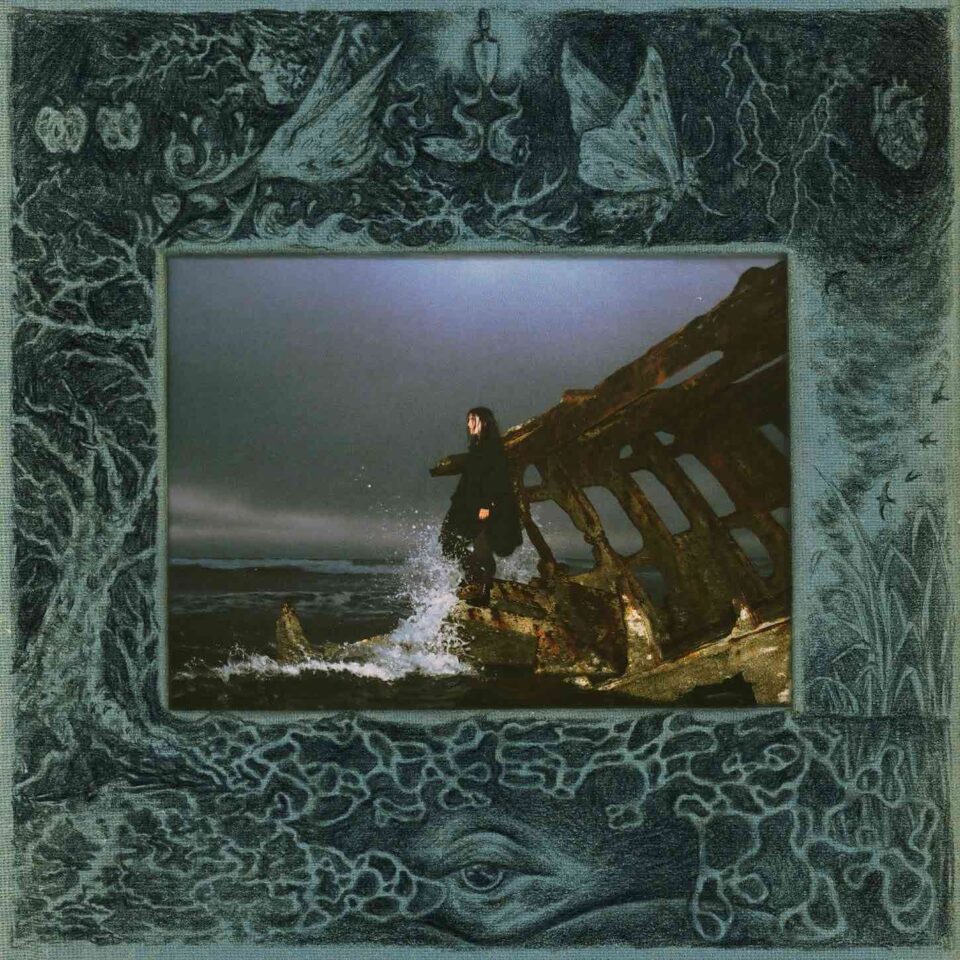During one of Doctor Who’s most famous episodes, “Victory of the Daleks,” the mechanized time lords utter the phrase “This is our past, and our future” in response to their reign of soul-crushing evil.
Nearly 25 years since industrial rap group Dälek’s (pronounced “die-a-leck”) first album, Negro Necro Nekros, the New Jersey–born noise-hop ensemble still carry on with dark menace as its calling card, but always with a ray of light and hope in its sinister mix. Helmed by producer-instrumentalist Mike Manteca (a.k.a. Mike Mare) and mouthpiece/lyricist Will Brooks (a.k.a. MC Dälek), Dälek find shadow and shade on their newest album, Precipice—out now on Mike Patton’s Ipecac label—and prove that hip-hop needn’t be a place where monetary value and misogyny rule.
In our conversation, Brooks discusses how the project has shape-shifted over the years while maintaining its core aesthetic, how he sees his influence on the current state of rap, and his relationship with Patton and Ipecac.
Nearly 25 years after your start, how do you feel connected to the initial aesthetic that you built?
I’ve always looked at each album as capturing a moment in time. They capture who I was at that particular time. The sound has grown and evolved as I have. I mean, Dälek has been my tag for a minute—as in, “I’m speaking in a different dialect.” I still do. We created our own lane with our approach to sound.
I remember you taking a break and reforming in 2015. Did you feel as if audiences and critics weren’t getting what you were doing, or was it all about refreshing the existing model?
Critics and audiences have always been good to us. Me and Okto [founding member Alap Momin, a.k.a Oktopus] had been touring non-stop at that point for about 15 years. We just needed to take a break and do other things. I went on to release and tour with iconAclass, and Oktopus had been living in Berlin at that point and worked on MRC Riddims and BKGD Audio. When I decided I wanted to restart Dälek, Okto’s heart was in his new projects, which I completely understood and respected. With his blessing I reformed with Mike Manteca as co-producer. Mike had been with us since the Filthy Tongue days, so he knew what the group and the sound was all about. It was a seamless transition and it’s been a pleasure to work with him and Joshua Booth on these current releases. It was also dope to briefly bring back my brother DJ rEk on [2016’s] Asphalt and [2017’s] Endangered.
“All I can do as an artist is make a statement. Who it resonates with, ultimately, is out of my hands. When it does, it’s humbling, and if those who it resonates with are musicians who are influenced by it, then it’s even more humbling.”
Thinking about the evolution of your aggro-atmospheric noise sound, I hear it more and more within the framework of mainstream rap—the best example being Kanye West, whose dense orchestral textures include industrial elements. Can you discuss what you imagine is your influence?
I think overall there’s a willingness in most music—mainstream and underground—to experiment and to blend sounds, influences, and genres at present. It’s dope to see. I have heard that Kanye—or, probably more correctly, one of his producers—was aware of our music, but I don’t know if that’s true or not. I think all music is built on what comes before it. For example, our sound is built on what KRS-One, Public Enemy, Rakim, My Bloody Valentine, Faust, This Heat, Velvet Underground, and All Natural Lemon & Lime Flavors did before us. If we’ve influenced others, that’s dope. All I can do as an artist is make a statement. Who it resonates with, ultimately, is out of my hands. When it does, it’s humbling, and if those who it resonates with are musicians who are influenced by it, then it’s even more humbling.

What’s the genesis of Precipice, as it comes five years after the still-relevant Endangered Philosophies? Was its recording a stop-and-start process with the pandemic?
I’m constantly working on tracks, beats, and ideas. I usually just put those ideas into folders, and when it comes time to work on the next album, we draw from those folders as the starting points. We began the album process pre-pandemic, and we had about 50 tracks in different states, some more fleshed out than others. From those 50, we narrowed it to 17 that we worked on in earnest. Joshua and I added guitar overdubs and worked on the arrangements when the pandemic hit and we had to shut down the studio. After we reconvened, what we had from before just wasn’t hitting how I knew I wanted it to, so we ended up taking some tracks off of the album and added a few new tracks that captured the emotion and feel that I wanted for the record. Some of the other tracks from before were stripped down and reworked as well to get to the 10 tracks that became Precipice.
The first word that comes up when speaking of Dälek is “darkness.” Maybe I’m a dope, but I hear light in “Good,” “Holistic,” and “Devotion.”
I think all my music has always contained a twinge of hope. Otherwise, what’s the point? My music is about the struggle—it’s about remembering—but it’s also about building. There’s definitely that in the joints you mentioned.
“I think all my music has always contained a twinge of hope. Otherwise, what’s the point? My music is about the struggle—it’s about remembering—but it’s also about building.”
Wanna say something about your continued label relationship with Mike Patton and working with Tool’s Adam Jones here? This seems like a birds-of-a-feather family if ever I witnessed one.
Yeah, no doubt. Mike, [label co-founder] Greg Werckman, and Ipecac is family. I’m thrilled to continue to put out records with them, and I’m thrilled about the new bands they keep adding to the roster. Bands like King Garbage and Spotlights make me proud to be on a label that already contains so many amazing musicians. At this point we’re on the board of directors along with the Melvins and Patton. Having Adam on this record is special too. That’s my brother, and we’ve been wanting to work on something together for a minute, so having his guitars and synths on “A Heretic’s Inheritance” really makes me smile. I think it’s just the start, too, as we have plans to work on other projects in the future.
Is there one song on Precipice that was the most challenging to get through lyrically—one that didn’t come quickly, but you knew you had to nail it?
I tried to take my time and really craft not only the lyrics, but the layering, effects, and flow of all the vocals on the entire album—not to mention the time and care we took with the sonics and the layering in the music. I think “Devotion” was the toughest for me only because the vocals were very personal to me. It wasn’t difficult as far as “takes to get the vocals,” just the overall track is very special to me. The whole album is, but I get into this space when we’re working on these albums where the songs become what they need to become organically. The entire process of creating an album can be difficult, but when you’re done, it’s incredibly rewarding. FL







